Michigan-Ontario Interface Notice
advertisement
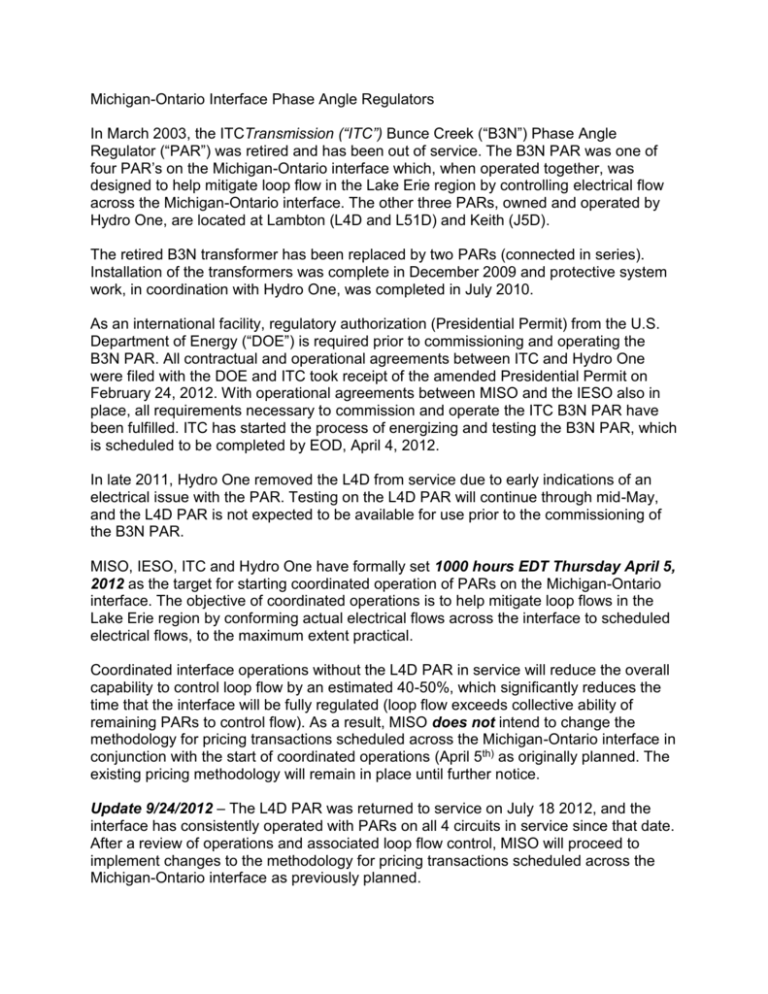
Michigan-Ontario Interface Phase Angle Regulators In March 2003, the ITCTransmission (“ITC”) Bunce Creek (“B3N”) Phase Angle Regulator (“PAR”) was retired and has been out of service. The B3N PAR was one of four PAR’s on the Michigan-Ontario interface which, when operated together, was designed to help mitigate loop flow in the Lake Erie region by controlling electrical flow across the Michigan-Ontario interface. The other three PARs, owned and operated by Hydro One, are located at Lambton (L4D and L51D) and Keith (J5D). The retired B3N transformer has been replaced by two PARs (connected in series). Installation of the transformers was complete in December 2009 and protective system work, in coordination with Hydro One, was completed in July 2010. As an international facility, regulatory authorization (Presidential Permit) from the U.S. Department of Energy (“DOE”) is required prior to commissioning and operating the B3N PAR. All contractual and operational agreements between ITC and Hydro One were filed with the DOE and ITC took receipt of the amended Presidential Permit on February 24, 2012. With operational agreements between MISO and the IESO also in place, all requirements necessary to commission and operate the ITC B3N PAR have been fulfilled. ITC has started the process of energizing and testing the B3N PAR, which is scheduled to be completed by EOD, April 4, 2012. In late 2011, Hydro One removed the L4D from service due to early indications of an electrical issue with the PAR. Testing on the L4D PAR will continue through mid-May, and the L4D PAR is not expected to be available for use prior to the commissioning of the B3N PAR. MISO, IESO, ITC and Hydro One have formally set 1000 hours EDT Thursday April 5, 2012 as the target for starting coordinated operation of PARs on the Michigan-Ontario interface. The objective of coordinated operations is to help mitigate loop flows in the Lake Erie region by conforming actual electrical flows across the interface to scheduled electrical flows, to the maximum extent practical. Coordinated interface operations without the L4D PAR in service will reduce the overall capability to control loop flow by an estimated 40-50%, which significantly reduces the time that the interface will be fully regulated (loop flow exceeds collective ability of remaining PARs to control flow). As a result, MISO does not intend to change the methodology for pricing transactions scheduled across the Michigan-Ontario interface in conjunction with the start of coordinated operations (April 5th) as originally planned. The existing pricing methodology will remain in place until further notice. Update 9/24/2012 – The L4D PAR was returned to service on July 18 2012, and the interface has consistently operated with PARs on all 4 circuits in service since that date. After a review of operations and associated loop flow control, MISO will proceed to implement changes to the methodology for pricing transactions scheduled across the Michigan-Ontario interface as previously planned. Effective October 1 2012, all transactions indicating a POR or POD of MI-ONT will be settled at a new CPNode ONT.DECO.PSOUT. This CP Node represents the average of EPNodes representing the 4 interface transmission circuits terminating on the IESO side of the Michigan-Ontario Interface. This change will be in place September 24, 2012 to allow 7 days prior to effective date of October 1, 2012.


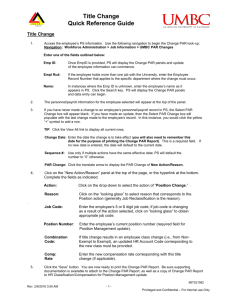
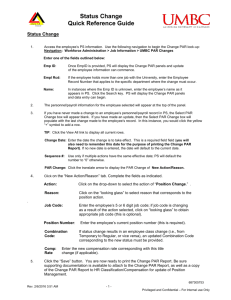
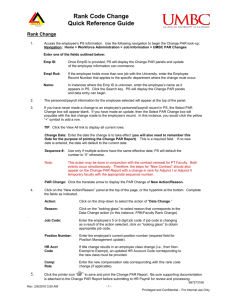
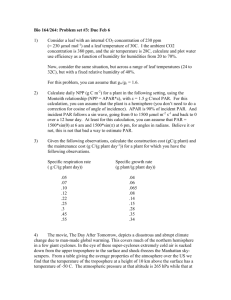
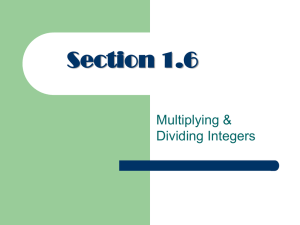



![√ [ 2] An Analogue of Stern’s Sequence for Z](http://s2.studylib.net/store/data/010376176_1-f71cd71d75bc34d8ddf624f11bbe71e2-300x300.png)